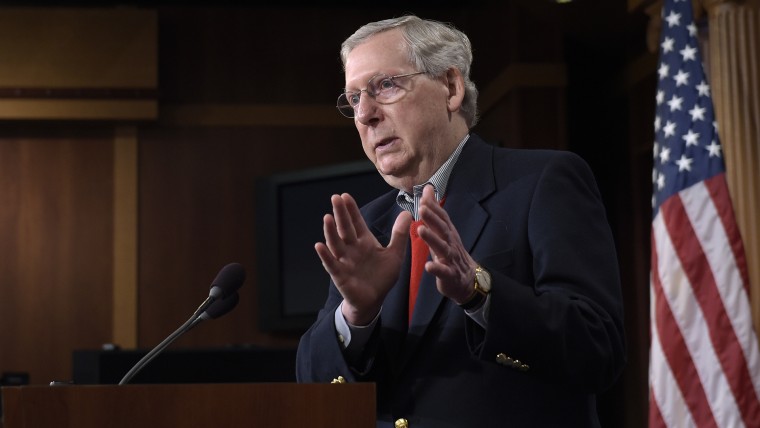The last major overhaul of the federal tax code was in 1986. It was the result of a multi-year effort, which was largely bipartisan. That's not to say it was easy -- the process was excruciating at times -- but the Democratic House and Republican Senate eventually reached an agreement, which the Reagan White House accepted.
With this in mind, the Senate Democratic minority acknowledged yesterday that another tax-reform push is poised to get underway, and they released a letter presenting some benchmarks, including a package that doesn't cut taxes for the top 1% and doesn't increase the deficit.
Senate Majority Leader Mitch McConnell (R-Ky.) didn't exactly welcome the Democratic recommendations. Politico reported:
Senate Republicans are sticking to their plans to pass a tax bill with 50 Republican votes, despite Democratic pleas not to be sidelined as they were on health care.Majority Leader Mitch McConnell on Tuesday reaffirmed the GOP's long-standing intention to shield any tax overhaul from a likely Democratic filibuster by using the procedural protections of budget reconciliation.
The GOP leader pointed to the Democrats' letter as a justification to exclude Democrats from the process. Politico's report added that, as far as McConnell is concerned, Dems are "not interested in addressing" Republican priorities.
McConnell added, "I don't think this is going to be 1986" -- which is true, because apparently he doesn't want it to be like 1986.
It's worth emphasizing that House Republican leaders have, at least in recent months, suggested they don't want to use the reconciliation process, because they want permanent changes to the tax code, and reconciliation opens the door to temporary changes (such as the Bush/Cheney tax cuts approved in 2001).
In other words, this will be something GOP leaders will have to figure out among themselves while working on the legislative blueprint.
Either way, however, Democrats seem prepared to play a role in the process, and Mitch McConnell appears to have a different plan in mind. It's an inauspicious beginning to the broader tax-reform push.
